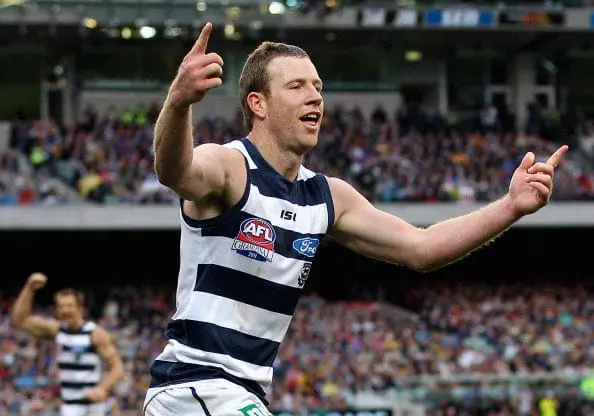The Australian Football Hall of Fame, established in 1996 during the centenary year of the AFL, serves to honour the outstanding contributions made to Australian rules football by players, umpires, coaches, administrators, and media personalities.
Starting with 136 inductees, the Hall has grown to include more than 300 members, including 32 "Legends" who represent the pinnacle of excellence in the sport.
Despite the extensive and esteemed list of inductees, several noteworthy players have yet to be recognised with the honour. Here we highlight six exceptional footballers who, despite their remarkable achievements and impact on the game, remain conspicuously absent from the Hall of Fame.
These players appeared to demonstrate the worthy skill, leadership, and dedication throughout their careers and for some, their exclusion is a point of contention, anticipation or misfortune within the football community.
In this piece we will explore the careers of these six deserving individuals who still await their place in the Australian Football Hall of Fame.
5. Steve Johnson
Steven Johnson, better known as "Stevie J," is a name that evokes memories of extraordinary goals and mesmerising flare in the greatest era of Geelong's storied history. His career, marked by incredible highs and moments of redemption, stories a journey from a young boy in Wangaratta to a three-time AFL premiership player.
Johnson's early days were spent honing his skills with the local Tigers in the Wangaratta Junior Football League and later with the Murray Bushrangers in the TAC Cup. His potential was evident, and recognised by Geelong with the 24th pick in the 2001 AFL Draft. But his path to greatness was not smooth-sailing from here.
Johnson's initial years with Geelong were tumultuous, marred by injuries, inconsistencies, and off-field issues. The nadir came in late 2006 when he was suspended by his club for the first five matches of the 2007 season following an arrest for public drunkenness.
Yet, it was this disciplinary action that marked a turning point in his career. His 2007 season was a revelation, earning him All-Australian honours and culminating in a Norm Smith Medal for his best-on-ground performance in Geelong's record-breaking 119-point Grand Final victory. Johnson's story became one of redemption, embodying the transformation from a troubled player to a premiership hero.

Johnson's career continued to flourish with the Cats. In 2008, despite further off-field sanctions, he maintained stellar form on the field, securing another All-Australian selection. The following year, he added a second premiership to his accolades.
However, the pinnacle of Johnson's career arguably came in 2011. Battling a severe knee injury sustained in the Preliminary Final defeat of West Coast, he defied the odds by recovering in time to play in the Grand Final against Collingwood. His performance was heroic, with 14 possessions and four goals at crucial stages of the match, leading Geelong to their third premiership in five years.
In 2015, Johnson brought his talents to the emerging Greater Western Sydney Giants, where his knack of influencing games remained undiminished.
Beyond his playing days, Johnson has continued to contribute to the game. Transitioning into coaching, he joined the Sydney Swans as an assistant coach shortly after retiring, and later, he became the senior coach of the Yarrawonga Football Club, leading them to a premiership in 2023.






